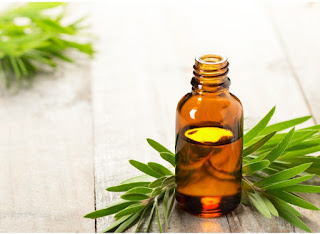It is especially helpful for anyone with dry skin. Dry skin requires extra care. It is vulnerable to environmental damage and aging. Wind, sun damage and free radicals all put dry skin under constant stress, and if it is not supported, this can lead to the breakdown of skin structure that we see as "aging." Lines appear, then wrinkles, and even sagging skin. Fortunately, sesame oil is naturally rich in nutrients, particularly vitamins A and E, that provide important building materials to help the body maintain supple skin. You can protect your skin by choosing creams, oils and lotions that contain it.
In addition to nourishing the skin, sesame oil also draws toxins out of the body. Molecules in the oil attract and attach to fat-soluble toxins lodged in the skin and pores, drawing them to the skin's surface where they can be easily washed away with soap and water. So this is an oil for the whole body, not just the face and neck. It can be used as a purifying massage oil for the whole body.
In face creams, or used alone, sesame oil stimulates cell rejuvenation to create firmer, smoother skin. It is packed with vitamin A, a nutrient that repairs skin tissue and improves collagen production, Good collagen production keeps skin looking young by filling in fine lines and preventing the appearance of wrinkles.
Vitamin E is one of the best nutrients for dry skin, and this oil provides a rich, soothing and gentle source of vitamin E for topical use. It blocks free radicals from damaging the skin and helps to rejuvenate damaged skin, again, preventing lines and wrinkles from forming. Skin spots and blemishes can be reduced with vitamin E., which is very helpful when applied directly to the skin. But vitamin E is sticky and uncomfortable to use in an undiluted form. It can be too much to deal with. Fortunately, sesame oil is an ideal source of this vital nutrient. With all its natural vitamin E content, plus vitamin A and other healing and nourishing compounds, this oil makes a major contribution to any skin care product in which it is contained. Plus it can serve as a very serviceable carrier oil. What could be better?
Well, it does get better. You can rub this oil into small cuts, abrasions, and chapped skin, and it will relieve irritation and help to rejuvenate the damage, all the while fighting off fungal and viral infections.
And that is why sesame oil is so popular with manufacturers of natural skin care products. In my view, organic sesame oil is the way to go, ideally with other botanicals infused in it to maximize its healing and rejuvenating effects.
Read Role of Sesame Oil in Boosting Strength of Male Organ
Author: Gaelle Lehrer Kennedy

